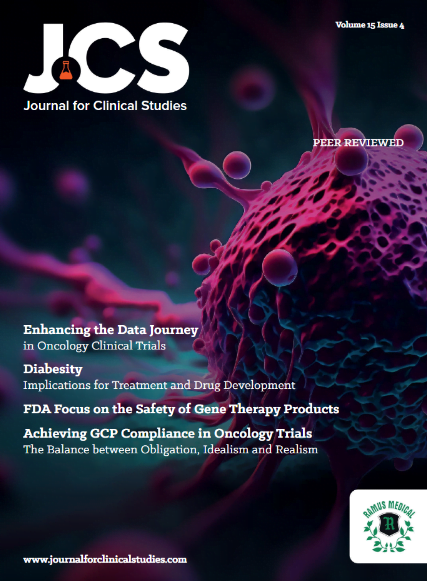Just when Gilead Sciences’ $21 billion acquisition of Immunomedics looked to be 2020’s biggest biopharma deal, AstraZeneca came up with an even larger one—and it involves one of the industry’s top takeover targets.
AstraZeneca is splashing out $39 billion to buy Alexion in a cash-and-stock deal, the British pharma revealed Saturday. The deal is driven by AstraZeneca’s desire to build a stronger presence in immunology—and to give its top line an immediate boost.
The deal values Alexion at $175 per share, a 45% premium to the Boston biotech’s closing price on Friday. As part of the cost will be paid in AstraZeneca shares, Alexion investors will own about 15% of the combined enterprise when the deal closes, likely in the third quarter of 2021.
“Alexion has established itself as a leader in complement biology, bringing life-changing benefits to patients with rare diseases,” AstraZeneca CEO Pascal Soriot said in a statement. “This acquisition allows us to enhance our presence in immunology.”
It also makes Soriot’s target of $40 billion in sales by 2023 more attainable. Last year, the biotech brought in sales of $5 billion, up 21% year over year, led by blockbuster rare disease med Soliris. And Alexion management has set a 2025 revenue target of about $9 billion to $10 billion. In comparison, AZ’s global sales hit $23.6 billion in 2019, a year-over-year boost of 12%.
AZ is grabbing a prize that doesn’t obviously fit with its own portfolio, but one that’s been a frequent guest on industry watchers’ lists of top takeover targets given its established portfolio and expertise in rare diseases. It’s also the No. 1 pick on Fierce Biotech’s most recent biopharma acquisition target roster, compiled with Jefferies analyst Jared Holz.
Holz previously noted that Alexion has been one of the cheapest stocks among mid- to large-cap biotechs based on its price-earnings ratio.
In an August investor’s note, SVB Leerink analyst Geoffrey Porges labeled Alexion as a “rare M&A-ready large biopharma.” At that time, he listed Sanofi, Pfizer, Biogen and Novartis as possible suitors based on their existing interest in rare disease, ranking AZ and several other Big Pharmas at the bottom because of their low exposure in the field.
AstraZeneca boasts a strong position in cancer, led by lung cancer drug Tagrisso, PARP inhibitor Lynparza and PD-L1 agent Imfinzi. It also sells products in cardiovascular, renal and metabolic diseases. The company recently pivoted to develop a COVID-19 vaccine, AZD1222, in a partnership with the University of Oxford, and it’s also working on an anti-coronavirus antibody cocktail.
In immunology, its approved products are crossovers from the respiratory field, though it just regained rights to an inflammatory bowel disease candidate, brazikumab. Allergan returned the anti-IL-23 antibody to win antitrust clearance for its $63 billion merger with AbbVie.
Now, AZ’s buying Alexion for its knowledge in immune-mediated diseases. Alexion’s portfolio includes Soliris and Ultomiris, which target C5, a key piece of the immune system. In addition, Alexion’s pipeline includes 11 molecules targeting Factor D, FcRn and others.
The $39 billion price tag roughly falls in Porges’ previous estimate of $34 billion at a “reasonable” premium of around 50%. But now, he argued, that the price is too low.
“[I]n today’s inflated market, we believe investors could demand more from AstraZeneca, or another acquirer,” he wrote in a Saturday note. “This is such a scarce and high-quality asset that in this instance, the final transaction price may need to reach $200 to satisfy Alexion’s shareholders, or to be based more in cash, rather than predominantly stock.”
Under the terms of the agreement, $60 will go to Alexion shareholders in cash for each Alexion share, with the rest paid in AstraZeneca shares.
Alexion investors have had concerns over the company’s over-reliance on the Soliris-Ultomiris franchise. But AZ highlighted Alexion’s success in transitioning more than 70% of paroxysmal nocturnal hemoglobinuria patients from Soliris to Ultomiris in less than two years as proof of Alexion’s skillful commercial execution.
The Boston biotech has made several M&A moves itself, but not exactly to investors’ satisfaction. In July, Alexion ditched development of its lead asset from a $930 million Achillion buyout in the C3 glomerulopathy indication after disappointing phase 2 data. In May, it paid $1.4 billion to Portola Pharmaceuticals for an underperforming anticoagulant reversal agent called Andexxa, though execs believe the drug will deliver over the long run.
“Alexion’s franchise is far more valuable in the hands of a large diversified company than it is independently,” Porges said, adding that rare diseases are one of the most attractive business segments in biopharma. The buyout “immediately elevates AstraZeneca into the top tier of the category,” he said.















